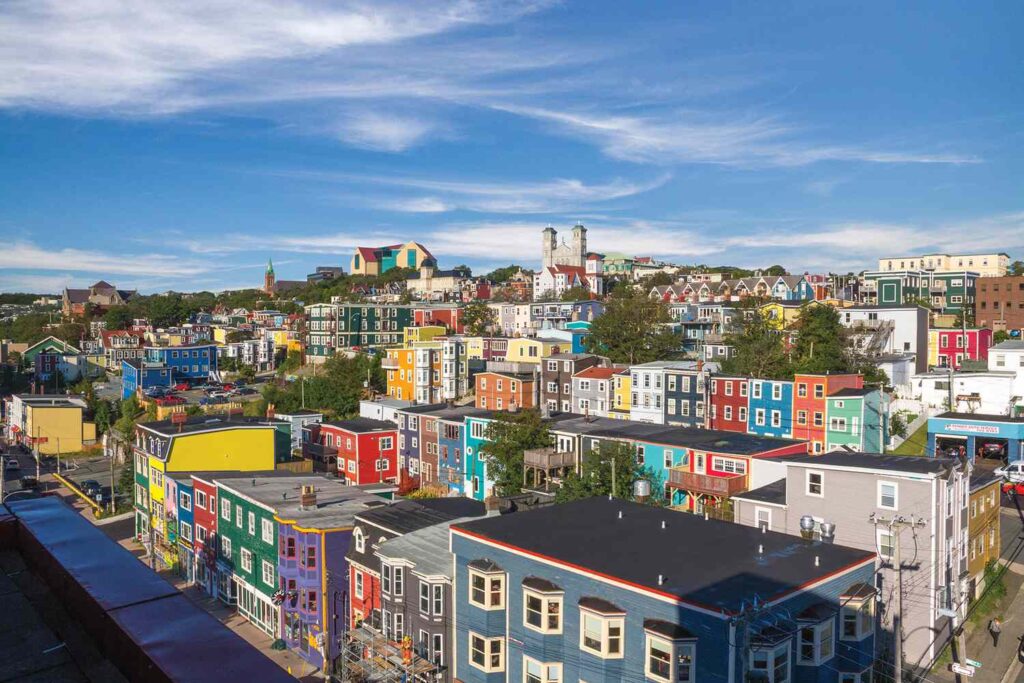Deep in Newfoundland, Canada sits the quaint, rural town of Gander. In the middle of town, you’ll find a small airport – the same airport of which a Broadway show and movie were written.
Over twenty-two years ago, on the morning of September 11th, 2001, then-mayor, Claude Elliot, headed out for his daily morning coffee. He had no idea that 38 commercial flights would bring 7,000 strangers to Gander that day, nearly doubling its population. 250 flights were diverted to Canadian airports in Nova Scotia, Newfoundland, and British Columbia after US airspace was shut down due to the 9/11 terrorist attacks. The diversion was coined Operation Yellow Ribbon.
Meanwhile, passengers on the US-bound planes were notified of the attacks and that they would be landing in Gander, Newfoundland. The drastic change of events, compounded by the fact that international data coverage and high-speed internet were not what they are today, naturally led to mass confusion. Kevin Tuerff, a Texan on a flight from Paris to New York, said to CNN, “He might as well have said Swahili. I didn’t know where we were. I didn’t know the difference between Newfoundland and Greenland and Iceland.” Plane crews offered free alcohol and food to console passengers while they sat in Gander International Airport’s previously empty runways. While this worked to ease the tension on some planes, other planes’ passengers just panicked.
Gander locals referred to their visitors as “plane people” and all pitched in to provide food, hot showers, and a place to sleep. The ratio of local to “plane people” was almost 1:1 so everyone was encouraged to help out. The call to “lend a hand, do what you can” resounded across community television stations. Fortunately, the town did not need much convincing. As schools and nonessential businesses were shut down, everyone from children to senior citizens volunteered to lend a hand. Schools, churches, and legion halls were converted to temporary housing and some residents invited passengers to stay in their homes. “People, foreigners from 90 countries, strangers – and potentially other terrorists – and they didn’t have to let us in. But they did,” Tuerff recalls.
The Newfoundlanders even took it a step further, according to the 9/11 museum, and did free pharmacy prescription refills, installed free public telephones so visitors could call home, and had toiletry, clothing, and food drives. They also set up town tours, bowline matches, concerts, and prepared stewed moose – a local favorite – for their guests. Residents shared that their actions were nothing out of the ordinary.
US airspace reopened on September 13, allowing the “plane people” to leave for home over the next few days. One passenger, Jacqueline Pinto, who headed home on September 15th recalls the goodbyes being emotional. “We didn’t want to leave. We really were having a great time with those Newfoundlanders.”
So many lasting friendships were created over those few days. Passengers, crew, and locals stayed in touch over social media, websites dedicated to their flights, phone calls, and in-person visits. Tuerff has visited Gander a few times over the years and always stays at the home of Mac Moss, the former administrator of Gander’s Community College, whom he met on September 11th. One flight crew and passengers created a scholarship for local Gander students that has grown from $15,000 in 2001 to over $1 million today.
In more recent years, Gander International Airport has struggled financially. It’s seeing more business and private jets on its runways than commercial planes. Considering that the airport employs 1/5th of Gander’s workforce, operational struggles are hard on community wages. Back in its heyday, the airport was the starting point of the world’s first nonstop transatlantic flight as well as many of Amelia Earhart’s early voyages. In the middle of the 20th century, during WWII, Gander was also a base for Allied aircraft headed to Europe and it later hosted Soviet planes that were not allowed to land on US soil. Fast forward to today, the airport is looking at a possible future as an aircraft maintenance hub in order to keep business running.
Nevertheless, the spirit of Gander remains unchanged. Tuerff has gone back in recent years and shared how the community has taken in Syrian refugees. Once again, to them, their hospitality is nothing out of the ordinary.
Those few short days in Newfoundland in September of 2001 were the result of the worst terrorist attack on American soil in US history. It was a devastating time, filled with fear. Yet, the passengers, crew, and locals who came together made memories they never forgot and built bonds that stood the test of time. In the darkest of times, the kindness they showed each other created light. Even when surrounded by evil, good prevailed.
“Human kindness has never weakened the stamina or softened the fiber of a free people. A nation does not have to be cruel to be tough.” – Franklin D. Roosevelt.

